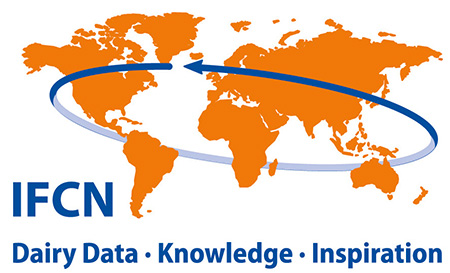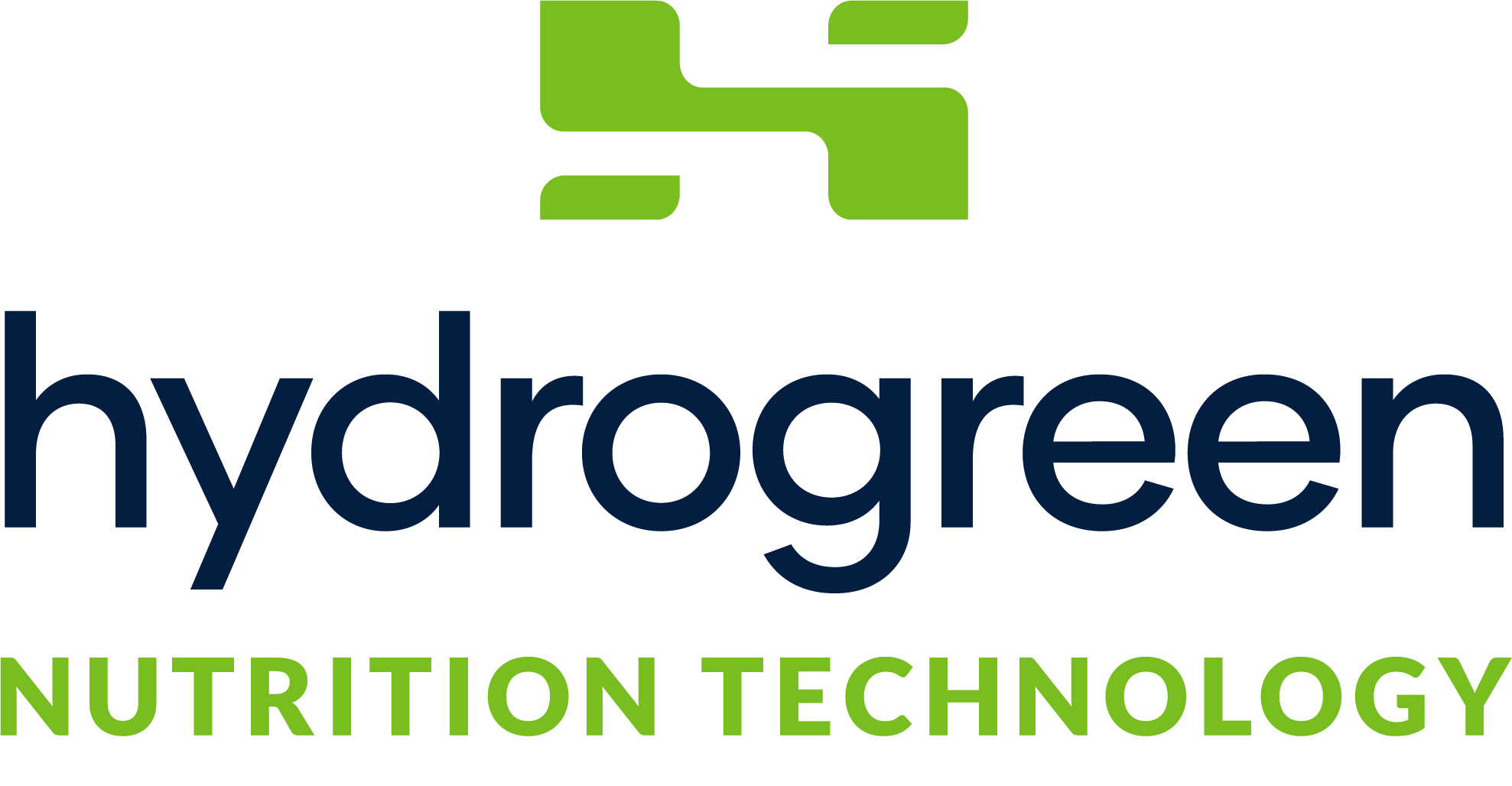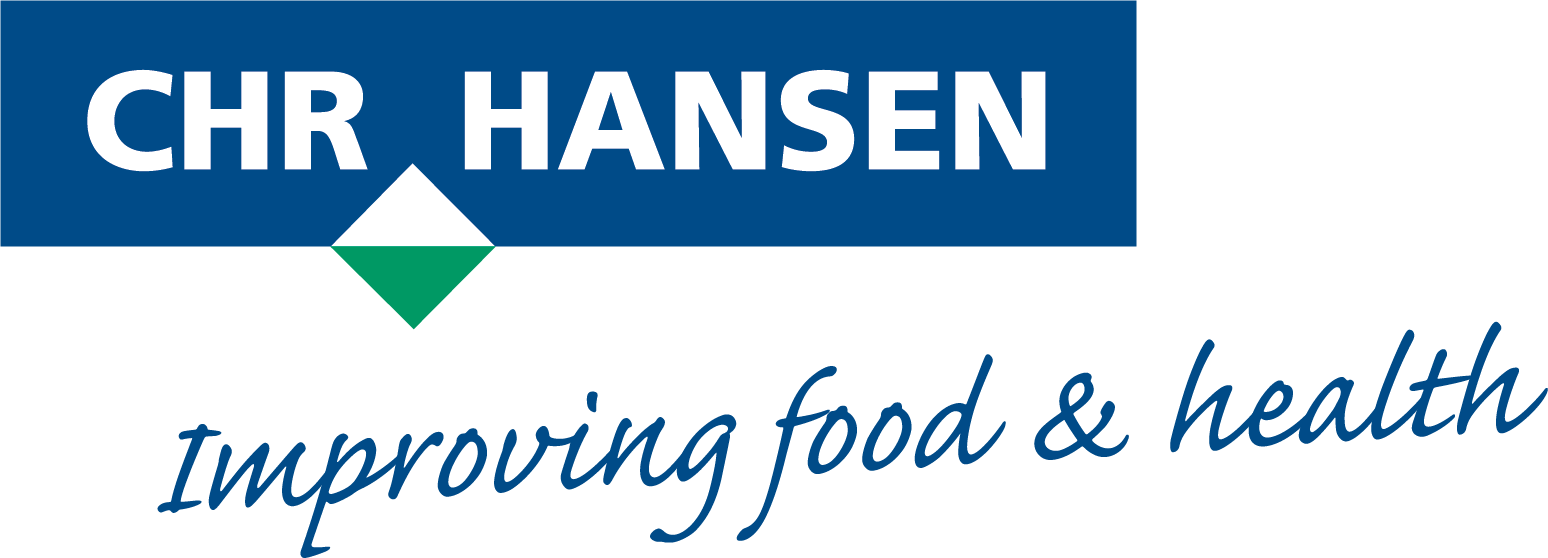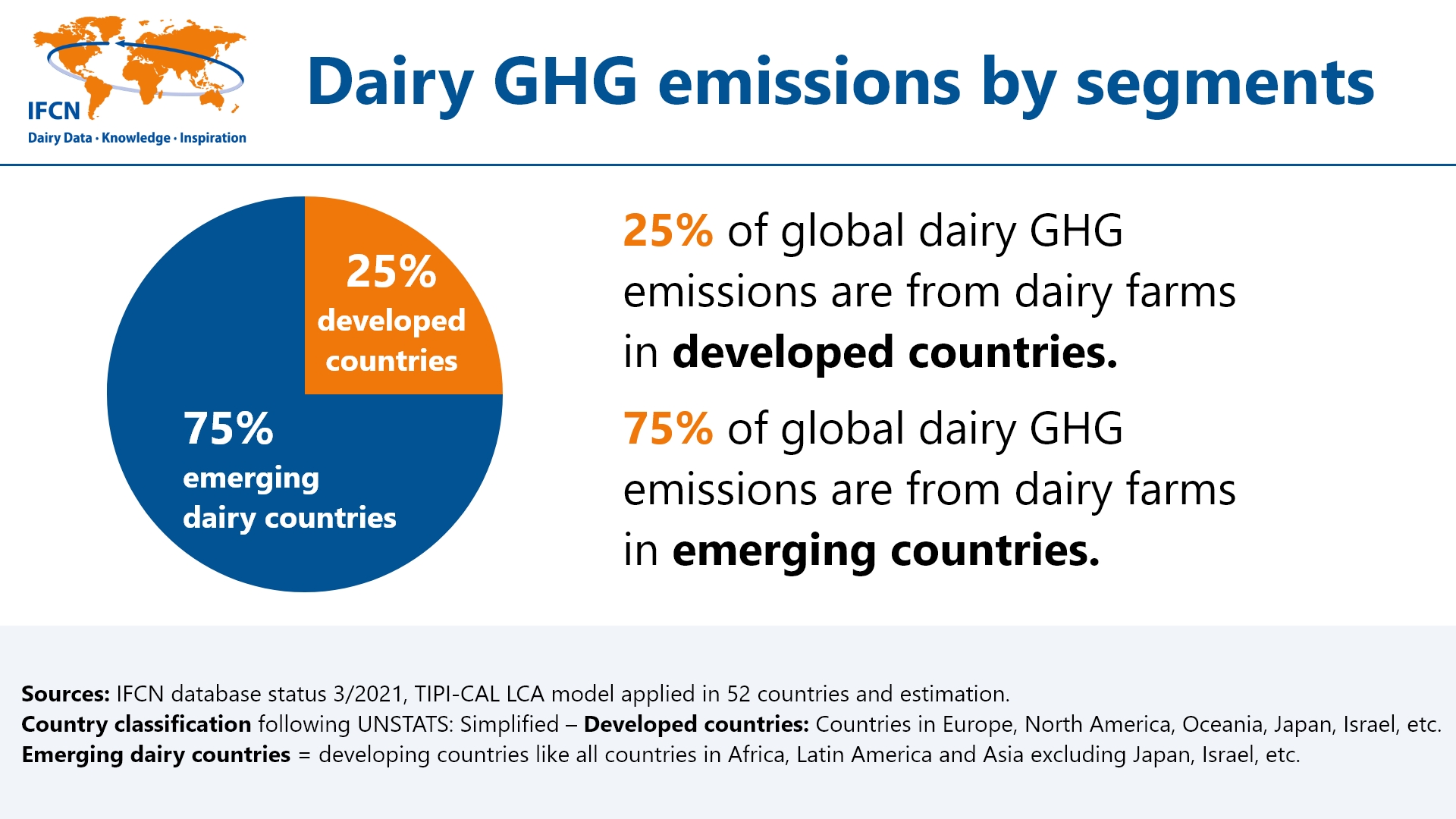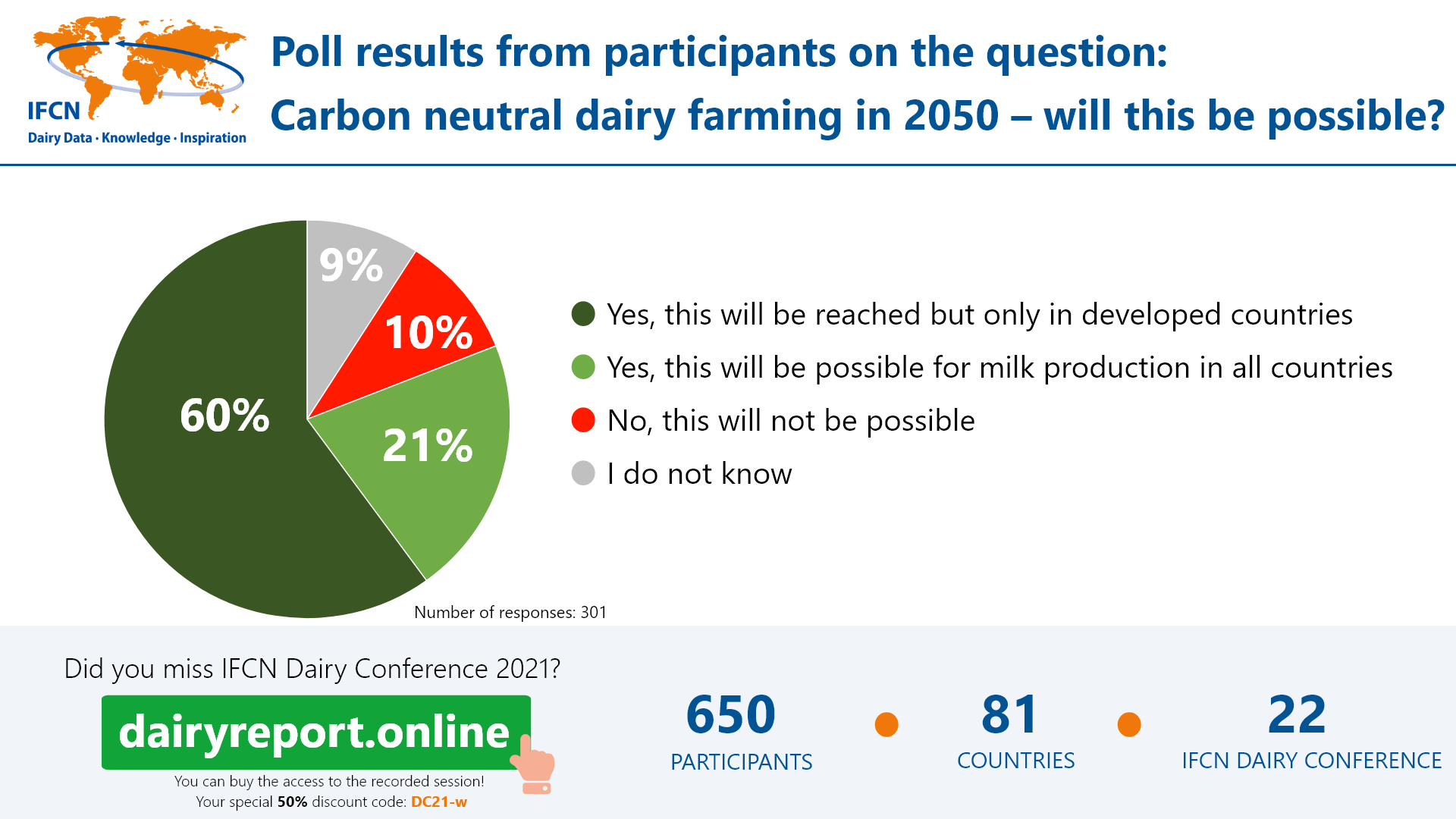IFCN Online
Dairy Conference 2021 June 9th 2021
Carbon neutral dairy farming in 2050
– will this be possible?
BUY ACCESS TO THE CONFERENCE
Carbon neutral dairy farming in 2050 is possible
This is the promising result of the 22nd Online Dairy Conference of the International Farm Comparison Network (IFCN). The event connected over 1000 dairy experts from 81 countries.
Carbon dioxide levels in the air are at their highest level in 650,000 years and we have seen 19 of the warmest years since 2000. Livestock and thus dairy farming undeniably contribute to greenhouse gas emissions (GHG). Torsten Hemme, founder of IFCN, states: “The GHG emissions of dairy farming account for about 2.2% of global GHG emissions. IFCN research shows that emerging countries account for 75% of those e missions and for approximately 100% of its growth over the past 20 years”. However, the dairy sector plays a vital role in providing high quality protein to billions of people and livelihoods to millions of farmers.
Piercristiano Brazzale, President IDF
Great sensitivity: “We already have a widespread awareness, if possible we need to have a greater sensitivity on the topic of Dairy and Greenhouse gas emissions in the whole dairy chain”.
By focusing on climate neutrality, the IFCN wants to provide a basis for decision-making and discussion through well-founded data and facts. The IFCN Dairy Baseline 2050 shows that GHG emission per kilogram of milk globally will decline by 28% worldwide, driven by the observed trend towards higher milk yields. As a result, growing global milk demand of + 50% will only cause + 8% additional GHG emissions in dairy farming in the next 30 years.
So what does it take to reduce these GHG emissions in dairy farming? The Dairy Conference aimed to provide answers by inviting speakers from leading global institutions and companies. The panelists came to the conclusion that carbon neutral dairy farming will become possible with fitting farming systems, improved farm management, better access to financial resources in combination with new technologies and a common dairy initiative. Donald Moore (Global Dairy Platform), stated: “By launching the Net Zero, Pathways to Low-Carbon Dairy initiative, the global dairy sector will demonstrate leadership in tackling climate change while protecting the vital role dairy plays in nutrition, and socio-economic outcomes.
Carlos Saviani, Global Sustainability Lead, DSM
Farm Sustainability program:“to have an intelligent sustainability program for enhancing the environmental sustainability of farm level milk production, similar to what was done for milk quality. Combination of an advanced, powerful sustainability calculation tool utilizing real farm data, with expert knowledge and tailor-made, practical solutions to measure, report and improve the environmental footprints in a holistic way”
The good news is that the large majority of participants (81%) agrees that dairy farming can become carbon neutral by 2050. However, it is more likely that developed countries will get there first, so it is important to find a collaborative approach. Jason Clay from WWF recommends: “Let’s build better knowledge sharing platforms – on how to reduce carbon emission in dairy. We need to learn faster”. IFCN would like to thank all participants, panellists and sponsors for their contributions that will help dairy on its way into the future.
